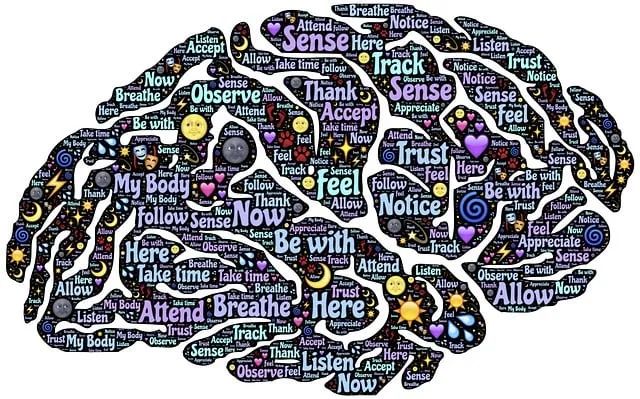Mental health understanding is key to fostering supportive environments for well-being. Breaking stigma encourages help-seeking without judgment, while awareness educates communities about mental health issues. Resources like the Denver Kaiser Permanente mental health phone number and Norcal campaigns play vital roles in policy advocacy and societal change. An effective education program should have clear goals, tailored content, and interactive formats, combining theory and practice. Strategic planning, leveraging existing resources, and diverse engagement methods ensure reach and dispel stigma. Measuring impact through data collection helps drive improvements and identifies successful components.
“Mental health education programs play a pivotal role in fostering well-being, especially in diverse communities. This article explores strategies for creating comprehensive initiatives, focusing on breaking stigma and promoting awareness. We delve into designing effective programs, considering structure, engagement tactics, and measurement techniques.
Learn how organizations like Denver Kaiser Permanente’s mental health phone line (a NorCal-inspired model) can empower individuals. Discover best practices to create meaningful change, ensuring a healthier future for all.”
- Understanding Mental Health: Breaking Stigma and Promoting Awareness
- Program Structure: Designing an Effective Education Initiative
- Implementation Strategies: Reaching and Engaging the Target Audience
- Measuring Impact: Evaluating Success and Continuous Improvement
Understanding Mental Health: Breaking Stigma and Promoting Awareness

Understanding mental health is a pivotal step in fostering a supportive environment for individuals’ well-being. Breaking the stigma associated with mental health issues is crucial, as it encourages people to seek help without fear of judgment. By promoting awareness, we can educate communities about various aspects of mental health—its prevalence, causes, and available support systems. This initiative is essential in reducing the burden of mental health disorders and ensuring individuals receive timely assistance.
In this context, Denver Kaiser Permanente’s mental health phone number serves as a valuable resource for those seeking guidance. Similarly, Norcal’s efforts in public awareness campaigns play a significant role in development by reaching out to diverse communities and fostering inner strength through education and support. The success of such initiatives lies in their ability to influence Mental Health Policy Analysis and Advocacy, leading to broader societal changes.
Program Structure: Designing an Effective Education Initiative

An effective mental health education program should be structured with a clear goal and well-defined objectives. The initiative should start by identifying the specific needs and challenges faced by the target audience, whether it’s employees at a corporation or students in a school setting. Denver Kaiser Permanente’s mental health phone number can serve as a resource for evidence-based practices, offering insights into what works best for various populations.
The program design should incorporate interactive workshops, group discussions, and personalized learning experiences. Topics such as Stress Reduction Methods and Compassion Cultivation Practices have proven effective in enhancing mental well-being. By blending theoretical knowledge with practical exercises, participants can gain tangible tools to manage anxiety and find relief. This approach ensures that the education initiative is engaging, relevant, and impactful, fostering a supportive environment for open conversations about mental health.
Implementation Strategies: Reaching and Engaging the Target Audience

Implementing a mental health education program requires strategic planning to reach and engage the target audience effectively. One key approach is to leverage existing resources and networks, such as utilizing the Denver Kaiser Permanente mental health phone number or similar helplines in NorCal, to spread awareness and connect individuals with needed support. These channels can help dispel stigma, provide immediate assistance, and act as a gateway to more comprehensive programs.
Additionally, tailoring educational content to resonate with diverse audiences is crucial. Incorporating topics like Self-Care Routine Development for Better Mental Health, Stress Management, and Self-Esteem Improvement can cater to specific needs while fostering a sense of community and shared understanding. Engaging formats such as workshops, interactive online sessions, or peer support groups can further enhance participation and ensure that the program effectively reaches those who might otherwise be hesitant to engage with mental health resources.
Measuring Impact: Evaluating Success and Continuous Improvement

Measuring the impact of a mental health education program is essential for evaluating its success and driving continuous improvement. Organizations like Denver Kaiser Permanente, with their dedicated mental health phone lines (e.g., Norcal), have recognized this need to quantify outcomes. By collecting data on participant engagement, knowledge retention, and behavioral changes, these programs can identify what’s working and where adjustments are required.
This process involves pre-and post-program assessments, feedback surveys, and tracking key performance indicators (KPIs) related to mental well-being. For instance, focusing on Stress Reduction Methods, Conflict Resolution Techniques, and Self-Care Routine Development for Better Mental Health can provide valuable insights into the program’s effectiveness in empowering individuals with practical tools for managing their mental health effectively.
Mental health education programs, as demonstrated by the successful models from Denver’s Kaiser Permanente initiative and NorCal’s innovative approach, are game-changers in breaking down barriers and fostering open conversations. By combining comprehensive understanding of mental health, strategic program structure, tailored implementation strategies, and robust measuring of impact, these initiatives ensure that support is accessible to all. Just as the Denver Kaiser Permanente mental health phone number and NorCal’s efforts have shown, investing in education paves the way for improved well-being and a more inclusive society.
